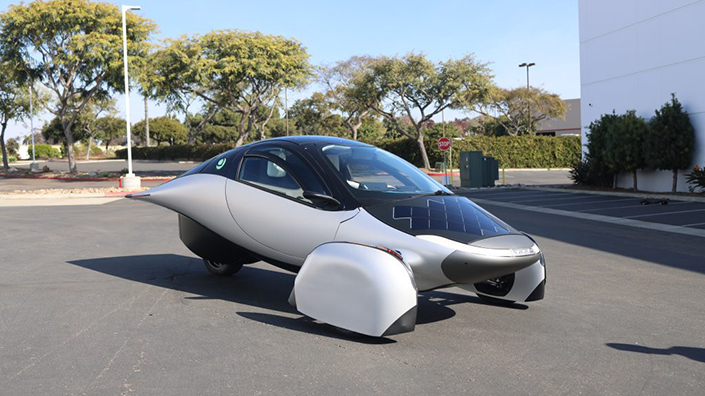But engineering companies also use the event, which ran last week in Las Vegas, to unveil some of their most ambitious and exciting new projects. Here are five of the most significant engineering-related reveals from this year’s show.
Generative AI to train humanoid robots
Humanoid robots could be one of the most important tools of the next industrial revolution, offering a way to automate complex yet tedious tasks in environments designed for humans. To do so, however, they need incredibly extensive training to achieve anything resembling human dexterity and nimbleness.
In a bumper set of announcements during the opening keynote, AI hardware and software supplier Nvidia announced new products aimed at just that. Its new Cosmos platform will advance “physical AI”, CEO Jensen Huang said, combining generative models that simulate real-world environments and physics with accelerated video processing and other features.
The platform’s “world foundation models” will offer developers a way to generate “massive amounts of photoreal, physics-based synthetic data to train and evaluate their existing models”, the company said, accelerating development by providing customised training for specific applications.
Leading humanoid robot firms including Agility and 1X have already adopted Cosmos, Nvidia said. Read how companies are taking humanoids out of research and into commercial applications in this Professional Engineering feature.
Rechargeable paper batteries
Lithium-ion batteries have transformed the modern world, enabling mobile electronics and electrified mobility. They also have a huge environmental cost, with widespread pollution from mining and associated emissions.
Singapore start-up Flint, which showcased at CES, aims to provide a sustainable alternative. Instead of lithium-ion, its batteries are based on cellulose, a key component of paper. The new products have a similar structure, with an anode, cathode and separator, but with proprietary chemistry aimed at cost-effective production, reduced environmental impact and high performance.
Unlike conventional batteries, the paper battery can bend and fold, which Flint says makes it “ideal” for wearables, Internet of Things (IoT) devices and medical sensors. It is also designed to decompose naturally after use, helping to reduce electronic waste.
The solar-powered car

Aptera Motors' solar-powered car
What if the power of the Sun could fuel your car on a daily commute, school run or trip to the shops? That rhetorical question has been posed for some decades now, but soon there could be a genuine answer.
Aiming for a future where “every journey is powered by the Sun”, California start-up Aptera Motors unveiled its “production-ready” solar electric vehicle (EV) at the event.
Designed to eliminate the need to plug in for most daily drives, the three-wheeler has a solar array of four panels distributed across its surface. It will offer up to 40 miles (64km) of sun-powered driving per day, with up to 400 miles (640km) of range available from a single charge in under an hour, when it is plugged in.
The car’s body is made of carbon fibre moulding compound, which Aptera said “dramatically reduces complexity, requiring fewer than one-tenth the parts of traditional vehicles, resulting in a lightweight yet robust design.”
In-wheel motors for every application
Promising more torque and power with lower cost and weight, start-up Donut Lab unveiled its family of direct-drive Donut Motors at CES. The product suite includes an option aimed at high-performance automotive applications, with the dramatic hubless design minimising mass and connection points on the wheel. Other products include a tiny drone motor optimised for performance and efficiency, and further options aimed at scooters and motorcycles.
Power and torque specifications look “very promising”, New Atlas reported. “Donut Lab's claim of 15.75 kW/kg (kilowatt per kilogram) [for the automotive motor] should definitely lift eyebrows and excitement, even if it's just a preliminary estimate.”
Industrial AI comes to the factory floor
Siemens was among the many companies bringing an AI-centred offering to CES. The German multinational announced its new Siemens Industrial Copilot for Operations, a generative AI-powered assistant for engineering in industrial environments. The tool is designed to enable AI tasks to run as close as possible to factory-floor machines, boosting productivity and efficiency.
“Industrial AI is a game-changer that will create significant positive impact in the real world across all industries,” said chief technology and strategy officer Peter Koerte. “Industrial AI allows us to harness the vast amounts of data generated in industrial environments and turn it into insights that drive real business impact.”
Want the best engineering stories delivered straight to your inbox? The Professional Engineering newsletter gives you vital updates on the most cutting-edge engineering and exciting new job opportunities. To sign up, click here.
Content published by Professional Engineering does not necessarily represent the views of the Institution of Mechanical Engineers.